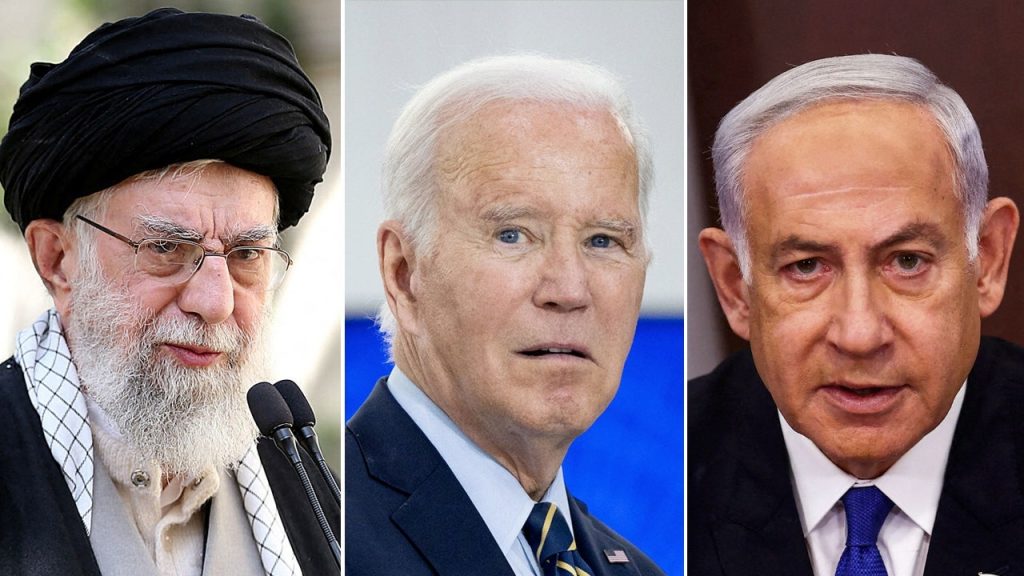President Biden and Israeli Prime Minister Benjamin Netanyahu had a phone call to discuss Israel’s response to Iran’s missile attack last week. The details of the call are limited, but Biden expressed his commitment to Israel’s security and condemned the attack. Speculation has arisen over what counterattack Israel will launch in response, with analysts considering options ranging from hitting military sites to targeting Iran’s nuclear installations. The U.S. has warned Israel against attacking Iranian nuclear or oil facilities due to concerns about escalating tensions in the region.
Following Iran’s attack, which the U.S. helped Israel defend against, Netanyahu vowed to make Iran “pay” for the assault. The potential targets for Israel’s response include Iran’s nuclear installations, including uranium mines and fuel enrichment plants. There is also consideraton of a response targeting infrastructure important to the Iranian regime. Despite warnings from the U.S. about potential consequences, Israel is expected to retaliate in a more public and significant manner compared to its response to Iran’s previous attack in April.
Tensions between the U.S. and Israel have been rising, particularly over civilian deaths in the Gaza Strip and Israel’s operations against Hezbollah. The U.S. cautioned Israel against a ground incursion into Lebanon and has reinforced its troops in the region to support Israel against potential threats. Questions remain about how the U.S. will support or respond to an Israeli strike on Iran, as well as the nature of Israel’s retaliatory strike. Israeli Defense Minister Yoav Gallant issued a warning to Iran, promising a powerful and surprising strike.
The relationship between Israel and the U.S. has faced challenges, especially regarding Israel’s military operations and responses to regional threats. Despite tensions, Israel is expected to take action against Iran in a significant and potentially wide-ranging manner. The Biden administration’s involvement in and support for Israel’s counterattack will be closely watched. Israeli military planners are considering various options to damage Iran’s nuclear program while keeping the U.S. informed and potentially involved. The upcoming decision on what to hit in Iran will signal the extent and nature of Israel’s operation, as well as the level of cooperation between Israel and the U.S.
The focus on potential Israeli retaliation against Iran underscores the ongoing tensions and rivalries in the Middle East. Israel’s determination to respond to Iran’s attack with a significant and strategic strike reflects its commitment to defending its territory and interests. The involvement of the U.S. in this situation adds another layer of complexity, with concerns about escalation and broader regional implications. As the situation continues to evolve, the actions and decisions of both Israel and the U.S. will shape the trajectory of the conflict and its potential impact on the wider region.













